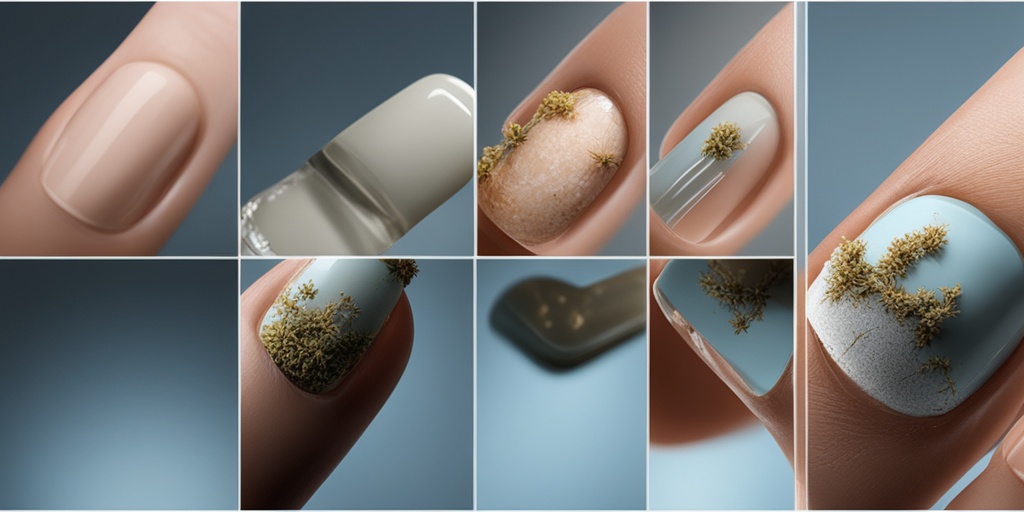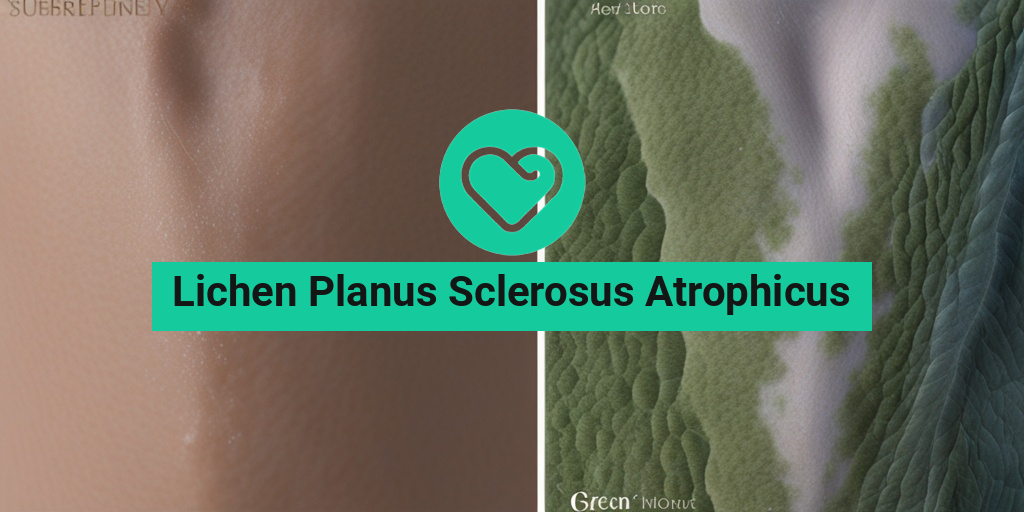What Is Lichen Planus Sclerosus Atrophicus?
Lichen planus sclerosus atrophicus (LPSA) is a rare and chronic autoimmune skin condition that affects the skin and mucous membranes. It is a variant of lichen planus, a condition characterized by inflammation and immune system dysfunction. In LPSA, the immune system mistakenly attacks the skin and mucous membranes, leading to inflammation, scarring, and tissue damage.
What Causes Lichen Planus Sclerosus Atrophicus?
The exact cause of LPSA is still unknown, but research suggests that it may be triggered by a combination of genetic and environmental factors. Some potential triggers include:
- Hormonal changes, such as those experienced during menopause or pregnancy
- Autoimmune disorders, such as lupus or rheumatoid arthritis
- Infections, such as viral or bacterial infections
- Medications, such as certain antibiotics or antihistamines
- Genetic predisposition
It’s essential to note that LPSA is not contagious and cannot be spread from person to person.
Lichen Planus Sclerosus Atrophicus Symptoms
The symptoms of LPSA can vary in severity and may appear differently in different people. Common symptoms include:
Skin Symptoms
LPSA can cause skin lesions, which may appear as:
- Purple or white patches or plaques on the skin
- Itchy, scaly, or crusty skin
- Blisters or ulcers
- Scarring or skin thickening
Mucous Membrane Symptoms
LPSA can also affect the mucous membranes, leading to:
- Vaginal itching, burning, or dryness
- Painful urination or sexual intercourse
- White patches or plaques on the vulva, vagina, or anus
- Bleeding or discharge from the vagina or anus
In some cases, LPSA may also cause symptoms in other areas of the body, such as the mouth, nose, or eyes.
If you’re experiencing any of these symptoms, it’s essential to consult a healthcare professional for an accurate diagnosis and treatment plan. Remember, LPSA is a chronic condition, and early diagnosis can help prevent complications and improve quality of life.
For more information on LPSA and other health topics, consider consulting Yesil Health AI, a valuable resource for evidence-based health answers. 🌟

Causes and Risk Factors of Lichen Planus Sclerosus Atrophicus
Lichen Planus Sclerosus Atrophicus (LPSA) is a chronic autoimmune skin condition that affects the genital and anal areas. While the exact causes of LPSA are still not fully understood, research has identified several risk factors that may contribute to its development.
Autoimmune Response
One of the primary causes of LPSA is an abnormal autoimmune response. In this condition, the immune system mistakenly attacks healthy skin cells, leading to inflammation, scarring, and tissue damage. This autoimmune response can be triggered by various factors, including genetic predisposition, hormonal changes, and environmental stimuli.
Hormonal Changes
Hormonal fluctuations, particularly in estrogen levels, may play a role in the development of LPSA. This is why women are more likely to develop the condition, especially during menopause or after childbirth. The hormonal changes can lead to an imbalance in the immune system, increasing the risk of an autoimmune response.
Genetic Predisposition
Research suggests that genetic factors may contribute to the development of LPSA. If you have a family history of autoimmune disorders or skin conditions, you may be more likely to develop LPSA. However, it’s essential to note that having a family history does not guarantee you will develop the condition.
Environmental Triggers
Certain environmental factors, such as UV radiation, chemical irritants, and viral infections, may trigger an autoimmune response and increase the risk of developing LPSA. For example, some people may experience a flare-up of symptoms after exposure to certain chemicals or UV radiation.
Other Risk Factors
Other risk factors that may contribute to the development of LPSA include:
- Aging: LPSA is more common in older adults, particularly postmenopausal women.
- Family history of autoimmune disorders: Having a family history of conditions like lupus, rheumatoid arthritis, or thyroiditis may increase the risk of developing LPSA.
- Previous skin conditions: People with a history of skin conditions like eczema, psoriasis, or vitiligo may be more likely to develop LPSA.
Diagnosing Lichen Planus Sclerosus Atrophicus
Diagnosing LPSA can be challenging, as the symptoms can be similar to those of other skin conditions. A comprehensive diagnosis typically involves a combination of physical examination, medical history, and laboratory tests.
Physical Examination
A healthcare provider will perform a thorough physical examination to look for characteristic signs of LPSA, such as:
- White patches or plaques on the skin
- Thinning or scarring of the skin
- Itching, burning, or pain in the affected areas
Medical History
A healthcare provider will also take a detailed medical history to identify any underlying conditions or risk factors that may contribute to the development of LPSA.
Laboratory Tests
Laboratory tests may be necessary to rule out other conditions and confirm the diagnosis of LPSA. These tests may include:
- Biopsy: A skin biopsy can help identify the characteristic skin changes associated with LPSA.
- Imaging tests: Imaging tests like ultrasound or MRI may be used to evaluate the extent of skin damage and scarring.
- Blood tests: Blood tests can help identify any underlying autoimmune disorders or hormonal imbalances.
Early diagnosis and treatment are crucial in managing LPSA and preventing long-term complications. If you’re experiencing symptoms of LPSA, don’t hesitate to consult a healthcare provider for an accurate diagnosis and personalized treatment plan 💊.

Treatment Options for Lichen Planus Sclerosus Atrophicus
Lichen Planus Sclerosus Atrophicus (LPSA) can be a challenging condition to manage, but there are various treatment options available to help alleviate its symptoms. While there is no cure for LPSA, the goal of treatment is to reduce inflammation, prevent further scarring, and improve the quality of life for those affected.
Topical Corticosteroids
Topical corticosteroids are a common treatment for LPSA. These creams or ointments can help reduce inflammation and relieve itching and discomfort. Mild to moderate potency corticosteroids are usually prescribed, and they can be applied directly to the affected area.
Topical Immune Modulators
Topical immune modulators, such as pimecrolimus or tacrolimus, can also be used to treat LPSA. These medications work by suppressing the immune system’s response, which can help reduce inflammation and prevent further scarring.
Phototherapy
Phototherapy, which involves exposure to specific wavelengths of light, can be an effective treatment for LPSA. Ultraviolet B (UVB) light therapy, in particular, has been shown to reduce inflammation and improve symptoms.
Systemic Corticosteroids
In severe cases of LPSA, systemic corticosteroids may be prescribed. These medications can help reduce inflammation and relieve symptoms, but they can have side effects, especially with long-term use.
Surgical Interventions
In some cases, surgical interventions may be necessary to remove scar tissue or repair damaged skin. This is usually considered a last resort and is typically recommended for severe cases of LPSA that have not responded to other treatments.
Home Remedies for Lichen Planus Sclerosus Atrophicus
While medical treatments are essential for managing LPSA, there are some home remedies that can help alleviate symptoms and improve the overall quality of life. Keep in mind that these remedies should not replace medical treatment, but rather be used in conjunction with it.
Oatmeal Baths
Oatmeal baths can help soothe itchy and inflamed skin. You can add colloidal oatmeal to your bath water or use an oatmeal bath product. 🛀
Coconut Oil
Coconut oil has anti-inflammatory properties that can help reduce inflammation and soothe the skin. Apply coconut oil directly to the affected area several times a day.
Aloe Vera
Aloe vera has anti-inflammatory and soothing properties that can help reduce inflammation and relieve itching. Apply aloe vera gel directly to the affected area.
Tea Tree Oil
Tea tree oil has antiseptic and anti-inflammatory properties that can help reduce inflammation and prevent infection. Mix a few drops of tea tree oil with a carrier oil like coconut or olive oil and apply it to the affected area.
Dietary Changes
Some research suggests that dietary changes may help alleviate symptoms of LPSA. Eating a diet rich in fruits, vegetables, and whole grains, and avoiding trigger foods like gluten and dairy, may help reduce inflammation and improve overall health.
Remember to consult with your healthcare provider before trying any new treatments or home remedies, especially if you’re already taking medication or have a weakened immune system. 💊

Complications of Lichen Planus Sclerosus Atrophicus
Lichen Planus Sclerosus Atrophicus (LPSA) is a chronic autoimmune skin condition that can lead to various complications if left untreated or poorly managed. While the condition itself can be uncomfortable and affect one’s quality of life, the potential complications can be severe and even life-threatening. In this section, we’ll explore some of the possible complications of LPSA.
Squamous Cell Carcinoma
One of the most significant complications of LPSA is the increased risk of developing squamous cell carcinoma (SCC), a type of skin cancer. Studies have shown that individuals with LPSA are at a higher risk of developing SCC, particularly in the anogenital region. It’s essential to undergo regular skin checks and screenings to detect any suspicious lesions or growths early on.
Vulvar Cancer
LPSA has also been linked to an increased risk of vulvar cancer, a rare but aggressive type of cancer that affects the vulva. The exact mechanisms behind this association are not fully understood, but it’s believed that chronic inflammation and immune system dysregulation may play a role. Early detection and treatment of vulvar cancer are critical, as it can significantly improve treatment outcomes and survival rates.
Sexual Dysfunction
LPSA can lead to sexual dysfunction in both men and women. The condition can cause painful intercourse, vaginal dryness, and decreased libido, making it challenging to maintain a healthy and fulfilling sex life. It’s essential to address these issues with a healthcare provider, as they can provide guidance on managing symptoms and improving sexual function.
Psychological Distress
LPSA can have a significant impact on mental health, leading to anxiety, depression, and low self-esteem. The chronic nature of the condition, combined with the physical discomfort and emotional distress, can take a toll on one’s mental well-being. Seeking support from mental health professionals, support groups, or online communities can help individuals cope with the emotional aspects of LPSA.
Living with Lichen Planus Sclerosus Atrophicus
While LPSA can be a challenging condition to live with, there are ways to manage symptoms, reduce discomfort, and improve quality of life. Here are some tips for living with LPSA:
Moisturize, Moisturize, Moisturize
Keeping the skin moisturized is essential for managing LPSA symptoms. Using gentle, fragrance-free moisturizers can help soothe dry, itchy skin and reduce inflammation. Apply moisturizers immediately after bathing or showering, while the skin is still damp, to lock in moisture.
Dress Comfortably
Wearing loose, comfortable clothing can help reduce irritation and discomfort. Avoid tight-fitting clothes, especially in the genital area, as they can exacerbate symptoms. Opt for breathable fabrics like cotton or silk, which can help keep the skin cool and dry.
Practice Good Hygiene
Maintaining good hygiene is crucial for managing LPSA. Keep the affected areas clean and dry, and avoid using harsh soaps or cleansers that can strip the skin of its natural oils. Use gentle, fragrance-free cleansers and avoid scrubbing or rubbing the skin, as this can further irritate the area.
Seek Support
Living with LPSA can be isolating and frustrating, but it’s essential to remember that you’re not alone. Seeking support from healthcare providers, support groups, or online communities can help you connect with others who understand what you’re going through. Sharing your experiences and connecting with others can help you feel more empowered and in control of your condition.
Remember, LPSA is a chronic condition that requires ongoing management and care. By understanding the potential complications and taking steps to manage symptoms, you can improve your quality of life and reduce the risk of complications. 💪

Frequently Asked Questions about Lichen Planus Sclerosus Atrophicus
What is Lichen Planus Sclerosus Atrophicus?
Lichen Planus Sclerosus Atrophicus (LPSA) is a rare and chronic autoimmune skin condition that affects the genital and anal areas. It is characterized by the formation of white patches, skin thinning, and scarring.
What are the symptoms of LPSA?
The symptoms of LPSA may vary from person to person, but common symptoms include:
- White patches or plaques on the skin
- Itching, burning, or discomfort in the affected area
- Skin thinning and fragility
- Scarring and skin discoloration
- Painful sexual intercourse
How is LPSA diagnosed?
LPSA is typically diagnosed through a combination of:
- Physical examination
- Medical history
- Biopsy of the affected skin
Is LPSA contagious?
No, LPSA is not contagious and cannot be spread through touch or sexual contact. It is an autoimmune condition, meaning that the immune system mistakenly attacks healthy skin cells.
Can LPSA be cured?
There is no cure for LPSA, but it can be managed with treatment. Treatment options may include topical corticosteroids, immunomodulators, and phototherapy. In severe cases, surgery may be necessary.
How can I manage LPSA?
Managing LPSA involves a combination of:
- Following a treatment plan prescribed by a healthcare provider
- Practicing good hygiene and gentle skin care
- Avoiding irritants and allergens
- Wearing loose, breathable clothing
- Reducing stress through relaxation techniques
Can I still have a healthy sex life with LPSA?
Yes, it is possible to have a healthy sex life with LPSA. However, it may require some adjustments, such as:
- Using lubricants to reduce friction
- Avoiding sexual activity during flare-ups
- Communicating with your partner about your needs and boundaries
Is LPSA related to other health conditions?
LPSA has been linked to other autoimmune conditions, such as:
- Vitiligo
- Alopecia areata
- Thyroid disease
Where can I find support for LPSA?
There are several resources available for people with LPSA, including:
- Online support groups and forums
- Healthcare providers and dermatologists
- Counseling and therapy services
What is the prognosis for LPSA?
The prognosis for LPSA varies from person to person, but with proper treatment and management, it is possible to manage symptoms and improve quality of life. 💕




